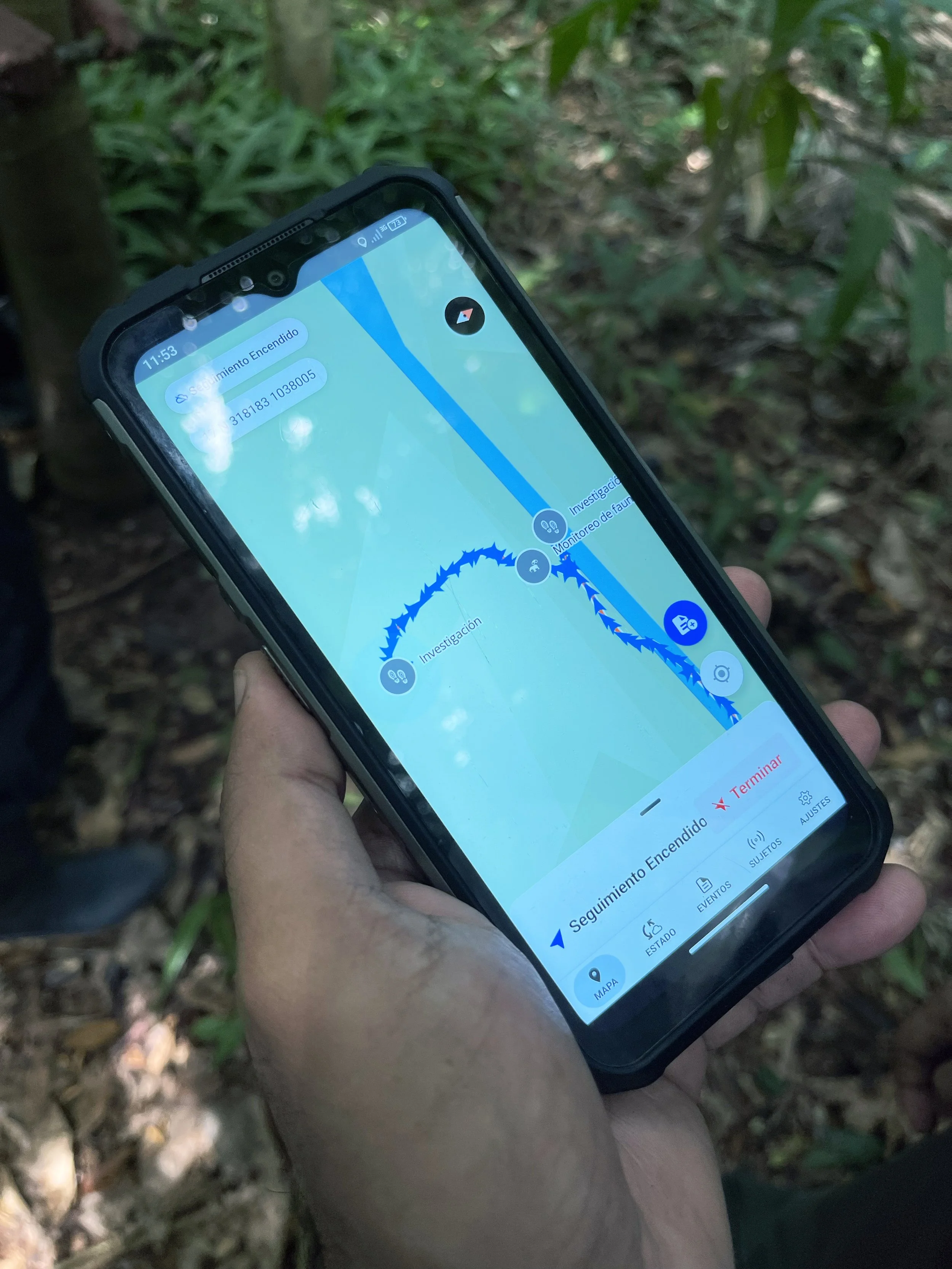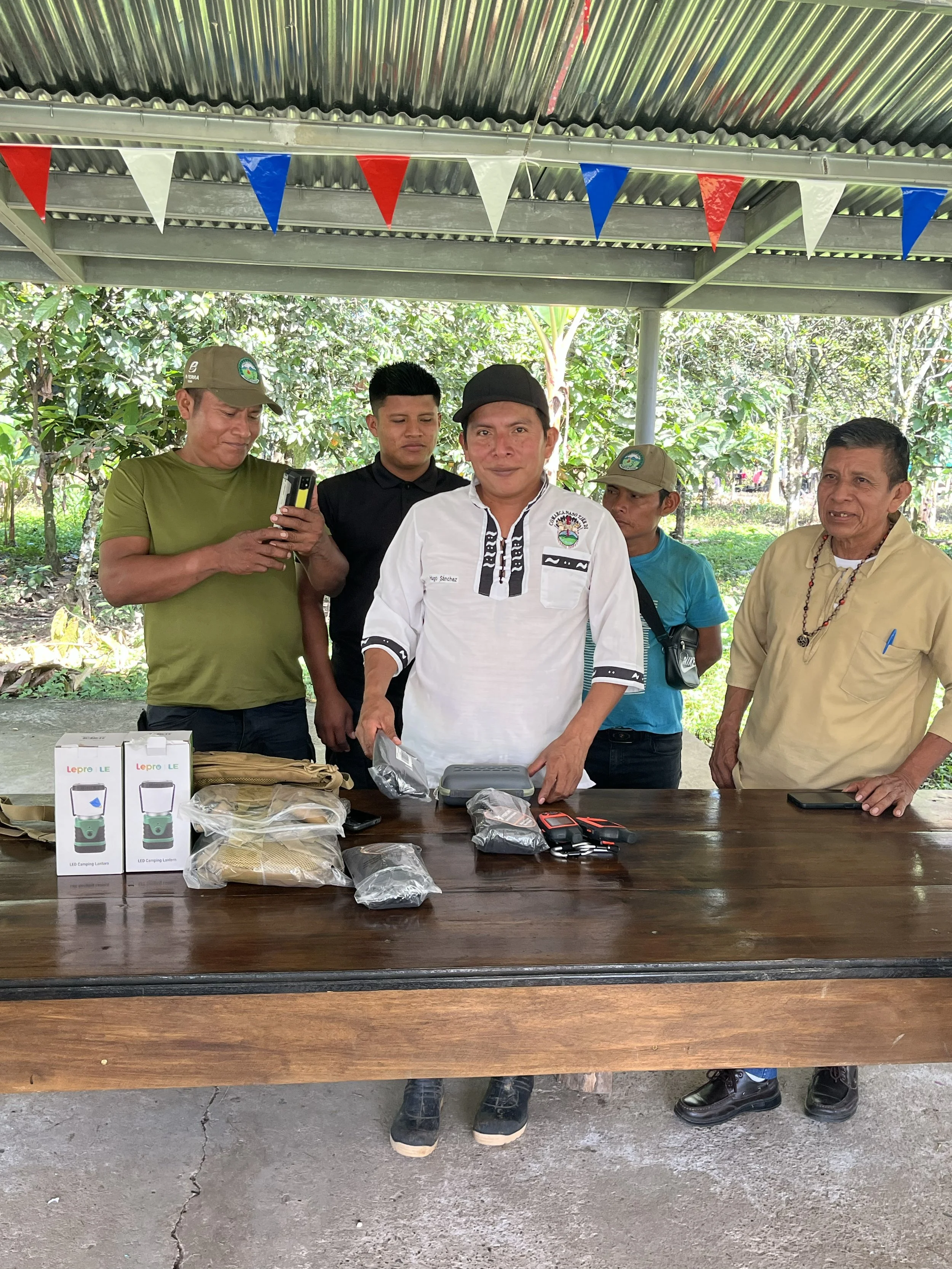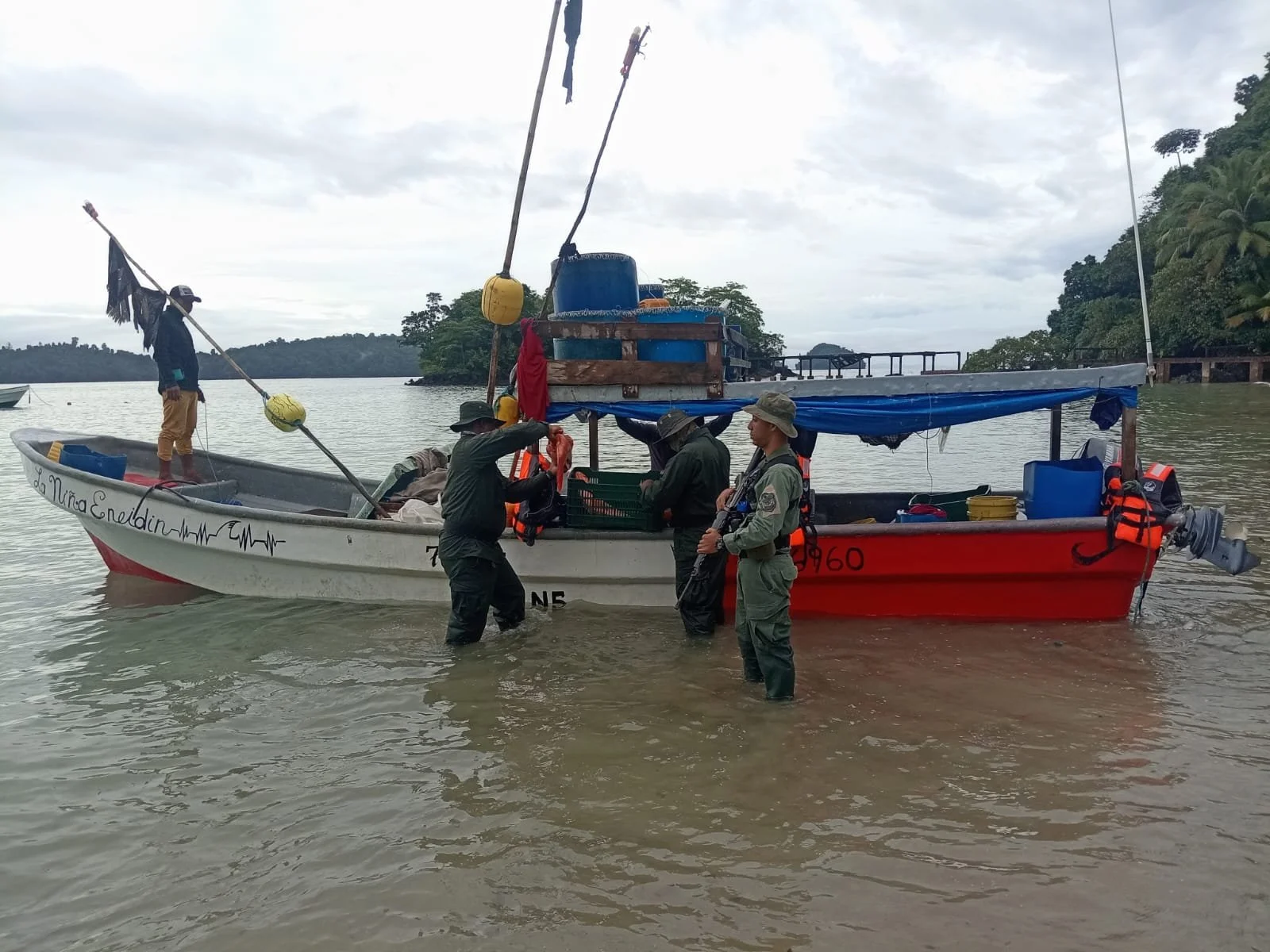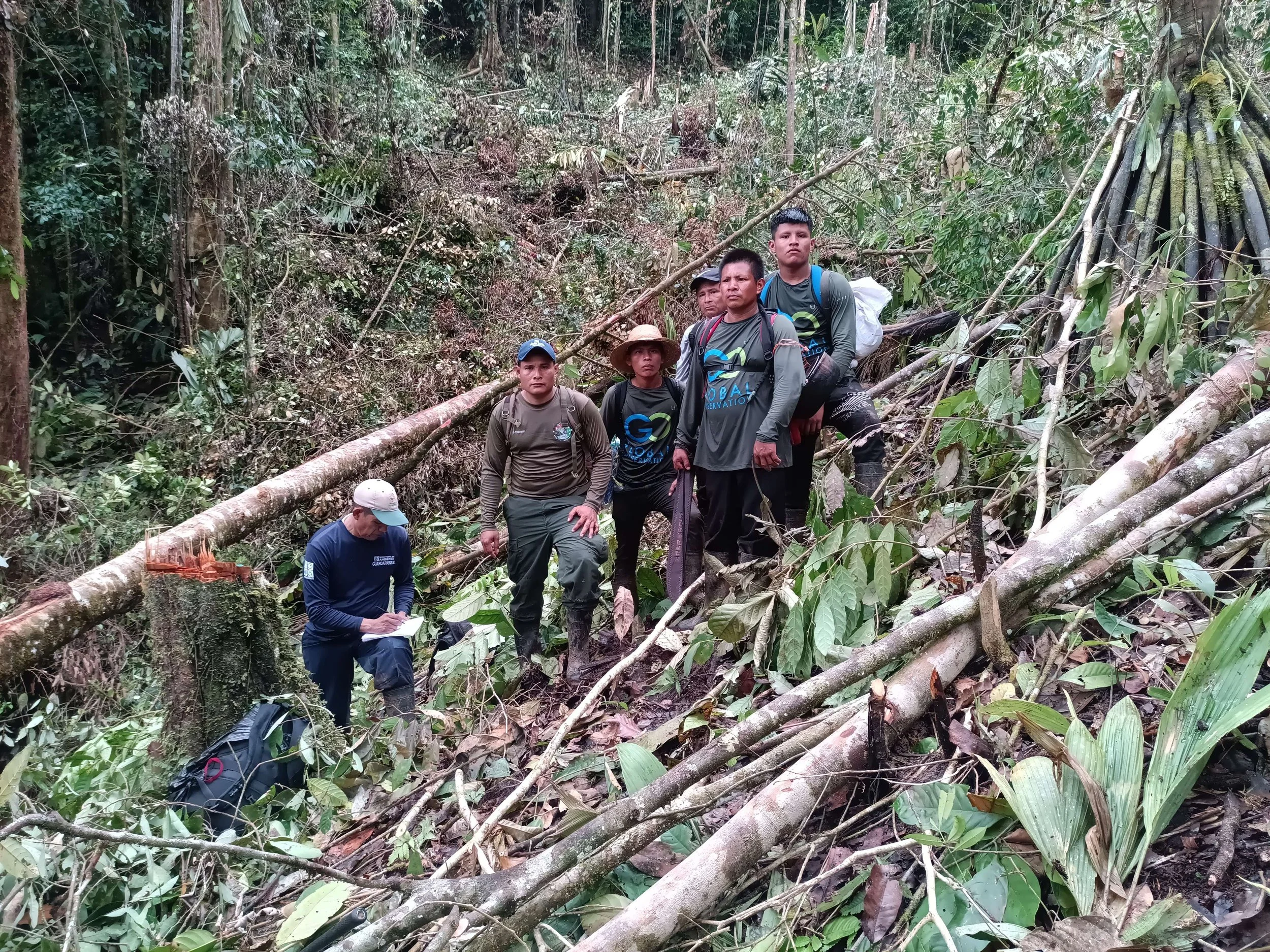Naso Kingdom Community Rangers Protect Their Indigenous Comarca
Written by Gemma TillackRangers from the Naso Kingdom spend days patrolling their forests to stop deforestation, which is penetrating the borders of their territory. Satellite monitoring and observing the terrain from high points like this one helps them identify deforestation hotspots to visit on patrols. Global Conservation continues to support the community rangers in their efforts to protect this vast area of tropical rainforests in Panama.
The Naso people protect the mountainous terrain surrounding their local villages, which are rich and biodiverse tropical rainforests. The forests are dense and have a variety of palms that shelter you from the intense heat. The palms provide materials for building shelters and meeting places for ceremony.
The forests are home to big cats such as pumas, jaguars, margays, and ocelots, as well as sloths, monkeys, and the endangered tapir, plus 600+ bird species. The Naso community rangers document signs of wildlife during their patrols. During our ascent up a steep ridgeline, the lead ranger found marks from a jaguar. The GC team compiles the data using SMART tracking technology.
The forests provide pure flowing water, vital food sources, and materials for local communities. Gardens are teeming with juicy fruits and staples such as plantains and yuca. Every meal is complemented with a delicious cup of chocolate made using cocoa grown around homes and on the forest edge.
Tiny poison dart frogs live among the dense leaf litter on the forest floor. The Naso community rangers have no problems finding them despite their ability to disappear out of sight.
The protection of these forests is paramount for hundreds of species. Endemic species need a place to breed and be free from poaching.
Without the support of GC, the Naso community rangers would not have access to resources and equipment needed to patrol and monitor their forest territory in Panama.
Forests are vital for our survival. The Naso Kingdom is another example of how securing Indigenous Peoples' legal rights to protect and manage their territories is key to ensuring the protection of forests and biodiversity for generations to come.
About the Author: Gemma TillackGemma Tillack is the Forest Policy Director for Rainforest Action Network (RAN) and works to create the market leverage necessary to improve both corporate and government policies and practices, with a focus on addressing major drivers of deforestation, development of carbon-rich peatlands and human rights violations in forest-risk commodity supply chains.





















